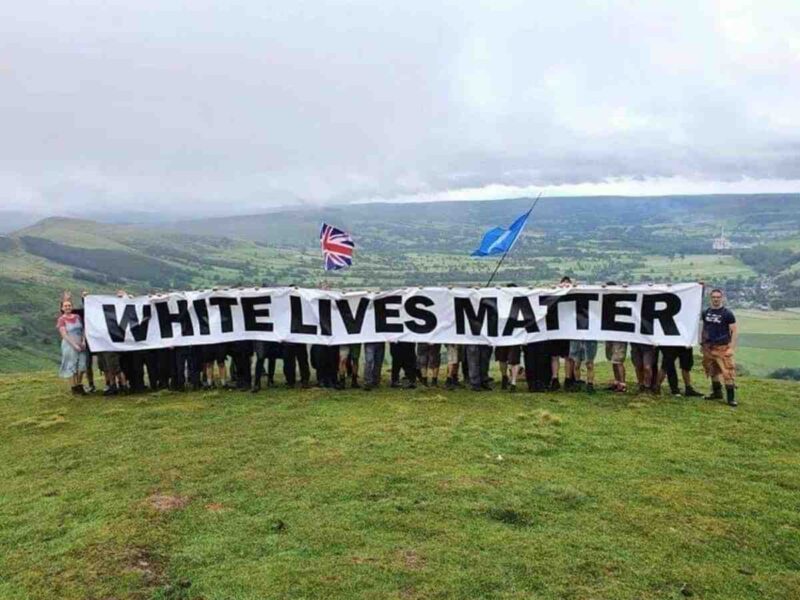Why Robert Putnam is Still Right
Back in 2007, Robert Putnam discovered what we all knew: diversity destroys any sense of the commons or shared culture, and so people retreat into their homes and stop caring about public life. In effect, it accelerates the bourgeois effect of cities where people become even more individualistic.
This offered the same criticism I have written about since the early 1990s, which is that with pluralism of any form, you focus on method (pacifism, acceptance, tolerance, inclusivity) and miss out on the need to find an answer or goal. This alienates people and sets them adrift in a form of loneliness in a crowd.
Naturally, the Left found this appalling so trotted out the usual suspects to write a complaint about the research in the form of a purported review of the data:
In 2007 the Harvard professor Robert Putnam published a paper that appeared to challenge the benefits of living in a racially diverse society. Putnam’s study, which used a large, nationally representative sample of nearly 30,000 Americans, found that people living in more diverse areas reported lower levels of trust in their neighbors. They also reported less interest in voting, volunteering, and giving to charity. In other words, greater diversity seemed to be linked to both feelings and behaviors that threaten a sense of community.
Sociologists Maria Abascal, of Princeton University, and Delia Baldassari, of New York University, published a paper late last year which refutes Putnam’s conclusions. After reanalyzing the same dataset used by Putnam, Abascal and Baldassari asserted that when it comes to distrust and diversity, most of the distrust is expressed by Whites who feel uncomfortable living amongst racial minorities. In other words, greater distrust may stem from prejudice rather than from diversity per se.
Let us look at the abstract from that study:
Nonwhites and immigrants report being less trusting than whites, and they live in relatively heterogeneous communities; these differences fully account for lower levels of trust in heterogeneous communities.
Regarding the second contribution, we find that living among nonwhites—not in diverse communities per se—negatively predicts trust among whites. No other ethnoracial group exhibits a similar association between out-group contact and trust.
The sleight of hand here is that Whites, by definition, are those who are transitioning from a functional monoethnic society to a dysfunctional polyethnic one.
For this reason, Whites notice diversity more; it disrupts their society which they view as the origin of their nation. They are the ones being squeezed out by the new anti-culture.
Whites, in other words, have something to lose, and therefore they notice diversity as a problem in the same way wealthy people notice taxation as a problem: they are the ones having something taken from them.
In our pursuit of diversity, we are pursuing Roman doom by making the same mistakes as past civilizations have:
Notably, DNA analysis revealed that as the Roman Empire expanded around the Mediterranean Sea, immigrants from the Near East, Europe and North Africa pulled up their roots and moved to Rome.
Civilizations die of individualism. When immediate risks go away, individuals decide to banish discussion of what bothers them about living in groups, namely that some are born kings and some are born peasants.
This creates a taboo and from this comes a talisman-scapegoat dichotomy, in which there is a presumed magical solution to all problems (talisman) which is held back by the source of all evils (scapegoat).
People stop paying attention to the consequences and benefits of their actions in reality and instead, simply focus on doing the same methods as everyone else. Following the herd means not only having no goal, but paying no attention to the world around you. You live in a bubble of yourself and socializing with others who must be like yourself.
This human narcissism ruins every society.
As it advances, the rules pile up and so do the privileges, so at some point the poor no longer work. They are the pitied and also the ideal, The Worker, so they are coddled and end up in desk jobs. The cost of labor goes shooting up with unions, taxes, lawsuits, and a death of a thousand cuts.
As this goes on, the empire needs more raw materials and cheap labor. It does not know it, but this is the method nature uses to destroy populations of unrealistic humans. It lets them succeed and then die of that success, suddenly and without them having any idea it is coming.
It is like the gold miners who kept finding more gold deeper in the mountain, and so they went far and low and eventually, destabilized the mountain so much that their tunnels collapsed and at the moment of their triumph in getting more gold than ever before, they found themselves suffocating and starving in the dark.
Nature has a Satanic sense of humor.
In the same way, the Romans thought that they had found a goose that laid golden eggs. They did not realize that the goose was their genetics and culture. In order to keep subsidizing themselves in lazy lifestyles, they stopped doing actual labor and farmed it out to foreigners from their new colonies.
Eventually, like Communism, this resulted in a society where no one did anything great and no one was paying attention to reality. When the crash came, it destroyed them militarily, financially, and genetically. Christianity and democracy played a role in this but those are symptoms of the decline.
Our society runs on social impulses like pity.
These create an arrogant class of worker. We are told to pity them, for example to be nice to waiters. The other day after a good meal, my eyes saw outside a waiter who had gone off-duty berating a janitor. The cruelty and arrogance were obvious on his face.
In a society dedicated to equality, people become cruel about their positions. This, too, is part of the decay.
Tags: collapse, crowdism, decay, diversity, robert putnam, rome










